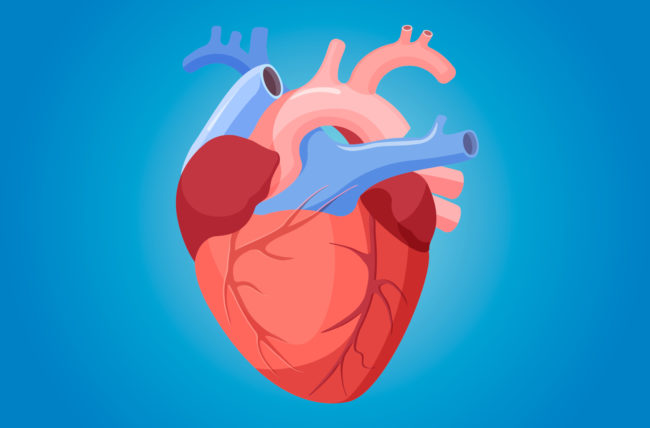Heart is indeed one of the vital organs that often be portrayed similar to an engine to the body. Taking care of heart health is important as many of the heart diseases may actually be prevented through a good healthy way of living. The heart itself is a strong organ as it pumps the blood throughout the body within the 100 000 kilometres of blood vessels in the human body. The heart never stops working until a person dies. However, have you ever thought about what really happens when the heart stops?
When we talk about a heart that stops, it would make us think about heart diseases. Heart disease is the number one killer cause of death in the world. It is estimated that 17.9 million people die from heart disease. One of the reasons being heart diseases is when the function of the heart decreases or stops. As we all might have already acknowledged, when the heart stops functioning totally, the chances for a person to survive is low.
When the heart stops beating, the blood that should be pumped will not reach the targeted organs. As it does not reach the brain and other vital organs such as lungs, the organ will start to die and within minutes, organ dysfunction can be expected. Remember, when one vital organ dies, it will lead to cessation of the many other organs. For example, when the heart stops, it leads to the person losing consciousness and respiratory issues within seconds. This is why it is important to understand what to do and what to seek for in a person suspected of having their heart stops. Getting urgent medical treatment in a timely manner can definitely save lives.
Abrupt loss of heart function in person with or without heart disease diagnosed before is characterised by cardiac arrest. Cardiac arrest occurs when the heart suddenly stops and stops pumping. It is typically caused by the irregular heartbeat known as arrhythmia. There are many kinds of arrhythmia but the main cause behind arrhythmias leading to cardiac arrest are ventricular fibrillation or ventricular tachycardia. Risk factors include history of cardiac arrest before, coronary artery disease, heart valve disease and congenital heart defects. When a person has one or more of the risk factors, he or she will have higher risk for cardiac arrest.
Most people who have cardiac arrest, have one or more symptoms in the hour before the event of the cardiac arrest occurs. Some symptoms may even be seen a few weeks before the cardiac arrest. However, many people may have no prior symptoms before the cardiac arrest. Warning signs such as signs of heart attack can be the cause of cardiac arrest. Cardiac arrest symptoms themselves often lead a person to lose consciousness or collapse suddenly, breathing problems such as ineffective breathing, gasping for air or not breathing at all and no pulse can be detected.
Cardiac arrest should not be confused with heart attack. Heart attack occurs when there is blockage in one of the artery arteries. This causes the blood flow to the heart muscle to be disrupted and may result in death of the heart muscle. The usual cause of a heart attack is the blockage made up of fats known as plaques on the wall of the artery. Before a heart attack, rupture or burst of the plaques will cause formation of blood clot at the ruptured site. This clot will block the blood supply to the heart. This condition is known as coronary artery disease. Symptoms include chest pain or discomfort, shortness of breath and pain or discomfort in the jaw, neck, back, arm or shoulder. Nonspecific symptoms such as nausea, vomiting, indigestion, weakness, dizziness, loss of appetite and cough, often occur in women compared to men since men usually experience the classic symptoms of heart attack.
It can be understandable why cardiac arrest and heart attack can be mistaken as the same thing since both involve the function of the heart to stop. Even so, in cardiac arrest, the heart stopped because of malfunction in the heart’s electrical system whereas in heart attack because of blockage in the blood flow to the heart. Ultimately, both can lead to the stop of the heart function.
In essence, the heart function can stop with or without a history of heart diseases before. Cardiac arrest and heart attack should not be seen as the same problem. Cardiac arrest can be more dangerous than a heart attack as 9 out of 10 people who have had cardiac arrest outside of hospital often die within minutes compared to people who have had heart attack which dies in the first 3 or 4 hours after symptoms. Heart attacks can cause cardiac arrest but not in most cases. Although, what still remains is to get medical advice or treatment as soon as possible is definitely crucial whenever there are symptoms, even mild ones, since this can greatly affect the outcome between life and death.
Also read – Dengue prevention.








